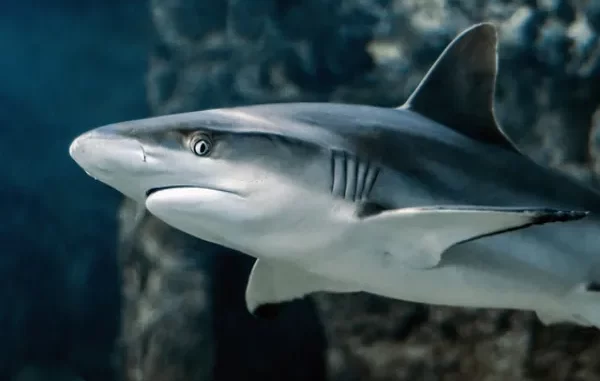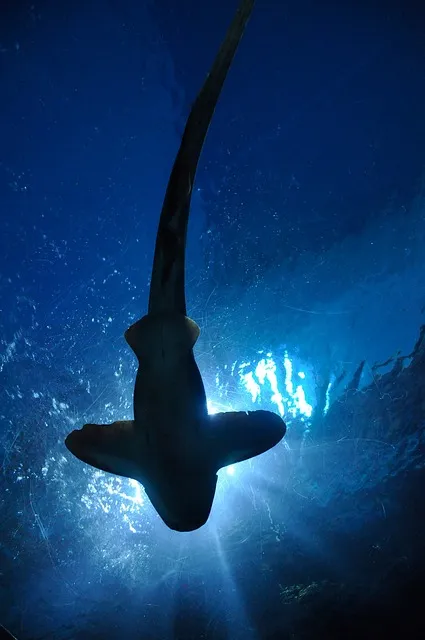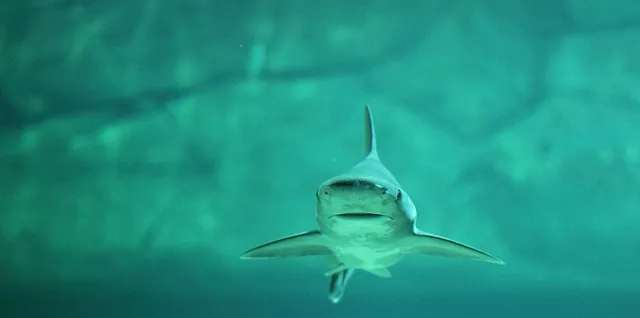
Sharks are one of the most fascinating creatures in the ocean. They have intrigued us for centuries with their mysterious behavior and abilities. Sharks have many unique qualities that make them one of the most feared predators in the sea. But there are also some fun facts about sharks that you may not know. From their incredible sense of smell to their unique reproductive strategies, this article will explore some fun facts about sharks.
Incredible Adaptations: Uncovering the Fun Facts about Sharks
Sharks have been a source of fascination for centuries, but the amazing facts about them often go unnoticed. From their incredible adaptations to their fascinating life cycles, sharks are truly remarkable creatures.
One of the most impressive adaptations of sharks is their powerful sense of smell. Sharks can detect even the smallest molecules in the water, allowing them to hone in on their prey over vast distances. In addition, some species of sharks have the ability to detect electrical fields, giving them an advantage when hunting.

Sharks have an incredible ability to regenerate lost or damaged tissue. Some species of sharks can regrow their teeth in a matter of days. Their regenerative capabilities also extend to their fins, which can be replaced if they become damaged.
Sharks have a fascinating life cycle. The majority of shark species are ovoviviparous, meaning that they give birth to live young. Some species lay eggs, but the eggs are kept inside the mother’s body until they hatch.
Sharks have a remarkable ability to survive in a variety of environments. Some species can survive in both fresh and salt water, while others can survive at extreme depths or temperatures. They are also able to migrate long distances, with some species migrating thousands of miles every year.
Sharks may have been around for millions of years, but their incredible adaptations and fascinating life cycles remain largely unknown. It is our hope that by uncovering the amazing facts about sharks, we can gain a better understanding of these incredible creatures.
From the Depths of the Sea: Unraveling the Mysteries of Shark Behavior

From the depths of the sea, mysterious creatures have captivated people for centuries. Sharks, in particular, have been a source of both fascination and fear. Although there is much to appreciate about them, our understanding of shark behavior is still incomplete. To better comprehend the behavior of these remarkable animals, scientists have conducted extensive research on the subject.
One of the most important aspects of shark behavior is their hunting strategy. Sharks use a combination of sight, smell, and electro-sensors to locate their prey. To further hone their senses, they possess a specialized organ called the ampullae of Lorenzini, which enables them to detect electrical signals in the water. Sharks are also known to hunt in packs, which allows them to pursue prey more efficiently.
In addition to studying their hunting methods, researchers have also examined their social behavior. Sharks are solitary creatures for the most part, but they can be seen congregating in large numbers. This is especially true during mating season, when they can be seen in large groups in certain areas. The reasons for this behavior remain unknown, but it is likely related to the availability of food and mates.
Further research has revealed that sharks also display complex communication patterns. The exact nature of this communication is still being debated, but researchers believe it involves a combination of physical posturing and acoustic signals. This could explain why sharks have been observed circling around objects in the water and making sounds.
Sharks are remarkable animals that have captivated people for centuries. With continued research, we can gradually unravel the mysteries of their behavior and gain a better understanding of these incredible creatures.
The Shark’s Tooth: Exploring the Unique Anatomy of Sharks
Sharks have long been seen as mysterious and powerful creatures of the deep, but their anatomy is actually quite fascinating. With a streamlined body and powerful fins, sharks have evolved remarkable features that make them well-adapted to their aquatic environment.
One of the most iconic features of sharks is their teeth. Sharks have hundreds of teeth that are arranged in multiple rows, all of which can be replaced when they become worn down. The teeth are sharp and serrated, making them perfect for catching and eating prey. Sharks have some of the strongest bite forces of any animal, allowing them to easily slice through their food.
The skin of sharks is another unique feature. Sharks have a specialized type of skin called dermal denticles, which are made up of dentin and enamel and are covered in a layer of keratin. This layer of dermal denticles is incredibly tough and helps to reduce drag in the water. It also prevents parasites from attaching to the shark’s skin.

Sharks have an advanced sense of smell that allows them to detect chemicals in the water, giving them the ability to find prey even in the dark. They also have a specialized organ called the ampullae of Lorenzini, which helps them detect the electrical field of potential prey.
The anatomy of sharks is truly remarkable and is a testament to their evolutionary success. From their sharp teeth to their specialized senses, sharks have adapted to their environment in order to survive for millions of years.
Myth Busting: Examining Common Misconceptions about Sharks
Sharks are one of the ocean’s most feared and misunderstood creatures. Over the years, myths and misconceptions have been perpetuated about these majestic creatures that have led to a negative public perception. In this article, we will strive to set the record straight by examining some of the most common misconceptions about sharks.
Misconception #1: Sharks are out to get humans.
Contrary to popular belief, most sharks are not interested in attacking humans. In fact, the majority of shark species are not even capable of causing significant harm to people. Of the hundreds of shark species in the world, only three have been responsible for a significant number of attacks on humans: the great white, tiger, and bull sharks. Even then, these species will only attack humans if they are provoked or if they mistake a human for their natural prey. The truth is that humans pose a much greater risk to sharks than they do to us.
Misconception #2: Sharks are dangerous animals.
This could not be further from the truth. Sharks are actually very important to the marine environment as they help maintain the balance of species, help to regulate prey populations, and provide nutrient-rich waste for the ocean floor. Their presence also helps to create healthy coral reefs and seagrass beds, which provide habitat for many other marine species. Without sharks, these marine ecosystems would be drastically altered.
Misconception #3: Sharks are mindless killing machines.
Sharks are actually highly intelligent creatures with complex social behaviors. They communicate with one another through a variety of methods, including body language, scents, and electrical signals. Sharks also exhibit problem-solving abilities and have been observed using tools such as rocks to break open shells to get to food. In addition, they are capable of learning from one another and have been known to teach their young how to hunt.
Misconception #4: Sharks are in danger of extinction.
It is true that some species of sharks are in danger of extinction due to overfishing and habitat destruction. However, there are still many species of sharks that are thriving and are not considered endangered. With proper management and conservation efforts, we can ensure that these populations remain healthy and continue to play an important role in the marine environment.
In conclusion, it is important to recognize that sharks are intelligent and important creatures that play a vital role in our marine ecosystems. By understanding the truth about sharks and dispelling these common myths, we can help to create a more positive public perception of these majestic animals.

Sharks are amazing creatures that are full of fun facts and intriguing behaviors. They are incredibly important to the ocean’s ecosystem and have captivated humans for centuries. Sharks have evolved to become incredibly well suited to their environment and to their prey, and they are full of fascinating adaptations that help them survive. The more we learn about sharks, the more fascinating they become, and the more we can appreciate their incredible contribution to our world.
If you liked our article Fun facts about sharks, you might also like Interesting facts about fish.
Leave a Reply